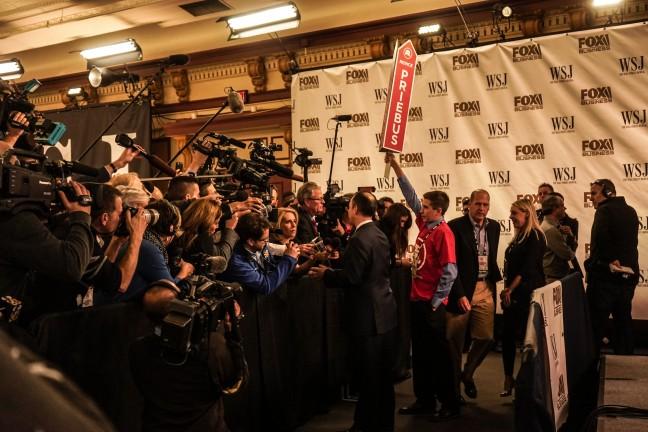Admit it, there have been times you read a headline and refused to click it because reading that one sentence prompted some sort of visceral, emotional reaction that put understanding and empathy on the back-burner.
It’s normal to want to disagree and shield yourself from facts and realities unfamiliar to your own. Discomfort is, as the word itself suggests, uncomfortable, and living in a virtual echo chamber where your friends and family reiterate your thoughts and opinions is easy and safe.
But in a post-truth era, this kind of practice is dangerous.
At a time where the president actively undermines and delegitimizes reputable news organizations, publications across the country have gone above and beyond their (very low) pay grade to fight the “fake news” that has come to proliferate in the American media.
From the Desk of the Editor: In a world of ‘fake news’ it’s on everyone to stay informed
In a hyperconnected global world, news has become readily available at the simple vibration of our phones. Our friends and family abroad can follow developments in Congress while we can read about a protest unraveling on the other side of the globe.
It’s an intimidating feat to break a story in an accurate and timely manner as it develops, so it’s only natural the humans behind the story make mistakes.
From student publications like The Badger Herald to prestigious media organizations like The New York Times, journalists make errors. The difference between them and the bots and foreign agents behind “fake news,” however, is they are ready and willing to fix them to prevent the spread of misinformation and lies.
Updates are made. Corrections are issued. Under the pressures of tight deadlines, low compensation and growing public mistrust, journalists strive every day to make sure the story that goes out is the truth.
The same cannot be said for a president who makes outrageous claims and lies with no facts to support them, and no intentions to acknowledge those errors.
The same cannot be said for the Russian or Macedonian hackers who deliberately inject Fake News into social media platforms to skew public opinion.
The same cannot be said for students who non-ironically share an article with the label “fake news” or jump into the comments section without clicking beyond the headline.
The damaging effects of “fake news” don’t just come in the form of a sketchy hyper-partisan website with altered logos and unsubstantiated stories — they come from Facebook shares and Tweets from those who don’t take the time to fact check and make sure what they’re sharing with others is accurate.
You often read a nutrition label on a food product before eating it. You do your best to make sure you’re controlling your alcohol intake when you go out with friends. News, like any commodity, should be consumed responsibly.
There are steps you can take to become a responsible news consumer. There are ways to spot “fake news,” and there are some websites that are already flagged and you should avoid. There are reputable news organizations from both sides of the political spectrum you can consult if you’re tired of seeing the same three publications clog up your newsfeed.
And while it’s important to take all of this into account, what’s more important is not to dismiss news and opinions you disagree with because it does not align with your own beliefs. Simply refuting events or ideas that you do not agree with from actual reputable sources is dangerous as it de-legitimizes the work that is being done by and creates unnecessary distrust and possibly panic.
Definitely make sure to point out actual errors when they occur, but be wary of sharing something as “fake news” because it made you roll your eyes or grit your teeth. This might actually push some people to seek alternative sources of information that is actually … “fake news.”
At The Badger Herald, we are always finding new ways to use this platform in the most beneficial, productive way that we can. As student journalists, we will make mistakes along the way, but we will always correct them in our mission to uplift student voices and unveil the truths around us — whether that be from politicians at the steps of the Capitol, or the everyday reality of marginalized students walking up Bascom.
We invite any and all students who are interested in learning more about or getting involved at the Herald to stop by our offices at 152 W. Johnson St. for one of our new members’ meetings Feb. and 22 at 6:30 p.m.














